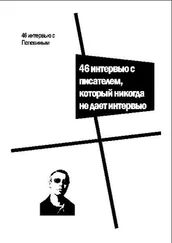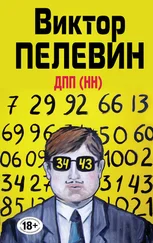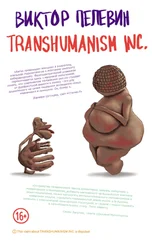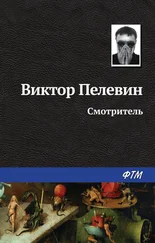Виктор Пелевин - Babylon
Здесь есть возможность читать онлайн «Виктор Пелевин - Babylon» весь текст электронной книги совершенно бесплатно (целиком полную версию без сокращений). В некоторых случаях можно слушать аудио, скачать через торрент в формате fb2 и присутствует краткое содержание. Жанр: Современная проза, на английском языке. Описание произведения, (предисловие) а так же отзывы посетителей доступны на портале библиотеки ЛибКат.
- Название:Babylon
- Автор:
- Жанр:
- Год:неизвестен
- ISBN:нет данных
- Рейтинг книги:5 / 5. Голосов: 1
-
Избранное:Добавить в избранное
- Отзывы:
-
Ваша оценка:
- 100
- 1
- 2
- 3
- 4
- 5
Babylon: краткое содержание, описание и аннотация
Предлагаем к чтению аннотацию, описание, краткое содержание или предисловие (зависит от того, что написал сам автор книги «Babylon»). Если вы не нашли необходимую информацию о книге — напишите в комментариях, мы постараемся отыскать её.
Babylon — читать онлайн бесплатно полную книгу (весь текст) целиком
Ниже представлен текст книги, разбитый по страницам. Система сохранения места последней прочитанной страницы, позволяет с удобством читать онлайн бесплатно книгу «Babylon», без необходимости каждый раз заново искать на чём Вы остановились. Поставьте закладку, и сможете в любой момент перейти на страницу, на которой закончили чтение.
Интервал:
Закладка:
MEDIIS TEMPESTATIBUS PLACIDUS CALM IN THE MIDST OF STORMS LEFORTOVO CONFECTIONERY COMBINE
In Draft Podium they reacted to Tatarsky’s scenario with horror.
‘Technically it’s not complicated,’ said Sergei. ‘Rip off the image-sequence from a few old films, touch it up a bit, stretch it out. But it’s totally off the wall. Even funny in a way.’
‘So it’s off the wall.’ Tatarsky agreed. ‘And funny. But you tell me what it is you want. A prize at Cannes or the order?’
A couple of days later Lena took the client several versions of a scenario written by somebody else. They involved a black Mercedes, a suitcase stuffed full of dollars and other archetypes of the collective unconscious. The client turned them all down without explaining why. In despair Lena showed him the scenario written by Tatarsky.
She came back to the studio with a contract for thirty-five thousand, with twenty to be paid in advance. It was a record. She said that when he read the scenario the client started behaving like a rat from Hamlin who’d heard an entire wind orchestra.
‘I could have taken him for forty grand.’ she said. ‘I was just too slow on the uptake.’
The money arrived in their account five days later, and Tatarsky received his honestly earned two thousand. Sergei and his team were already planning to go to Yalta to film a suitable cliff, on which the bun carved in granite was supposed to appear in the final frames, when the client was found dead in his office. Someone had strangled him with a telephone cord. The traditional electric-iron marks were discovered on the body, and some merciless hand had stopped the victim’s mouth with a Nocturne cake (sponge soaked in liqueur, bitter chocolate in a distinctly minor key, lightly sprinkled with a tragic hoar-frosting of coconut).
‘One generation passeth away and another generation cometh.’ Tatarsky thought philosophically, ‘but thou lookest out always for number one.’
And so Tatarsky became a copywriter. He didn’t bother to explain himself to any of his old bosses; he simply left the keys of the kiosk on the porch of the trailer where Hussein hung out: there were rumours that the Chechens demanded serious compensation when anyone left one of their businesses.
It didn’t take him long to acquire new acquaintances and he started working for several studios at the same time. Big breaks like the one with Lefortovo’s calm-amid-storms Confectionery Combine didn’t come very often, unfortunately.
Tatarsky soon realised that if one in ten projects worked out well, that was already serious success. He didn’t earn a really large amount of money, but even so it was more than he’d made in the retail trade. He would recall his first advertising job with dissatisfaction, discerning in it a certain hasty, shamefaced willingness to sell cheap everything that was most exalted in his soul. When the orders began coming in one after another, he realised that in this particular business it’s always a mistake to be in a hurry, because that way you bring the price way down, and that’s stupid: everything that is most sacred and exalted should only be sold for the highest price possible, because afterwards there’ll be nothing left to trade in. Tatarsky realised, however, that this rule did not apply to everyone. The true virtuosos of the genre, whom he saw on TV, somehow managed to sell off all that was most exalted every day of the week, but in a way that provided no formal grounds for claiming they’d sold anything, so the next day they could start all over again with nothing to worry about. Tatarsky couldn’t even begin to imagine how they managed that.
Gradually a very unpleasant tendency began to emerge: a client would be presented with a project conceived and developed by Tatarsky, politely explain that it was not exactly what was required, and then a month or two later Tatarsky would come across a clip that was quite clearly based on his idea. Trying to discover the truth in such cases was a waste of time.
After listening to his new acquaintances’ advice, Tatarsky attempted to jump up a rung in the advertising hierarchy and began developing advertising concepts. The work was much the same as he had been doing before. There was a certain magic book, and once you’d read it there was no more need to feel shy of anyone at all or to have any kind of doubts. It was called Positioning: A Battle for your Mind, and it was written by two highly advanced American shamans. Its essential message was entirely inapplicable to Russia - as far as Tatarsky could judge, there was no battle being waged by trademarks for niches in befuddled Russian brains; the situation was more reminiscent of a smoking landscape after a nuclear explosion - but even so the book was useful. If was full of stylish expressions like ‘line extension’ that could be stuck into concepts and dropped into spiels for clients. Tatarsky realised what the difference was between the era of decaying imperialism and the era of primitive capital accumulation. In the West both the client who ordered advertising and the copywriter tried to brainwash the consumer, but in Russia the copywriter’s job was to screw with the client’s brains. Tatarsky realised in addition that Morkovin was right and this situation was never going to change. One day, after smoking some especially good grass, he uncovered by pure chance the basic economic law of post-socialist society: initial accumulation of capital is also final.
Before going to sleep Tatarsky would sometimes re-read the book on positioning. He regarded it as his little Bible; the comparison was all the more appropriate because it contained echoes of religious views that had an especially powerful impact on his chaste and unsullied soul: The romantic copywriters of the fifties, gone on ahead of us to that great advertising agency in the sky…’
CHAPTER 3. Tikhamat-2
Lenin’s statues were gradually carted out of town on military trucks (they said some colonel had thought up the idea of melting them down for the non-ferrous metal content and made a lot of money before he was rumbled), but his presence was merely replaced by a frightening murky greyness in which the Soviet soul simply continued rotting until it collapsed inwards on itself. The newspapers claimed the whole world had been living in this grey murk for absolutely ages, which was why it was so full of things and money, and the only reason people couldn’t understand this was their ‘Soviet mentality’.
Tatarsky didn’t really understand completely what this Soviet mentality was, although he used the expression frequently enough and enjoyed using it; but as far as his new employer, Dmitry Pugin, was concerned, he wasn’t supposed to understand anything anyway. He was merely required to possess this mentality. That was the whole point of what he did: adapt Western advertising concepts to the mentality of the Russian consumer. The work was ‘freelance’ - Tatarsky used the term as though it still had its original sense, having in mind first of all the level of his pay.
Pugin, a man with a black moustache and gleaming black eyes very like a pair of buttons, had turned up by chance among the guests at a mutual acquaintance’s house. Hearing that Tatarsky was in advertising, he’d shown a moderate interest. Tatarsky, on the other hand, had immediately been fired with an irrational respect for Pugin - he was simply amazed to see him sitting there drinking tea still in his long black coat.
That was when the conversation had turned to the Soviet mentality. Pugin confessed that in the old days he had possessed it himself, but he’d lost it completely while working for a few years as a taxi-driver in New York. The salty winds of Brighton Beach had blown all those ramshackle Soviet constructs right out of his head and infected him with a compulsive yearning for success.
Читать дальшеИнтервал:
Закладка:
Похожие книги на «Babylon»
Представляем Вашему вниманию похожие книги на «Babylon» списком для выбора. Мы отобрали схожую по названию и смыслу литературу в надежде предоставить читателям больше вариантов отыскать новые, интересные, ещё непрочитанные произведения.
Обсуждение, отзывы о книге «Babylon» и просто собственные мнения читателей. Оставьте ваши комментарии, напишите, что Вы думаете о произведении, его смысле или главных героях. Укажите что конкретно понравилось, а что нет, и почему Вы так считаете.






